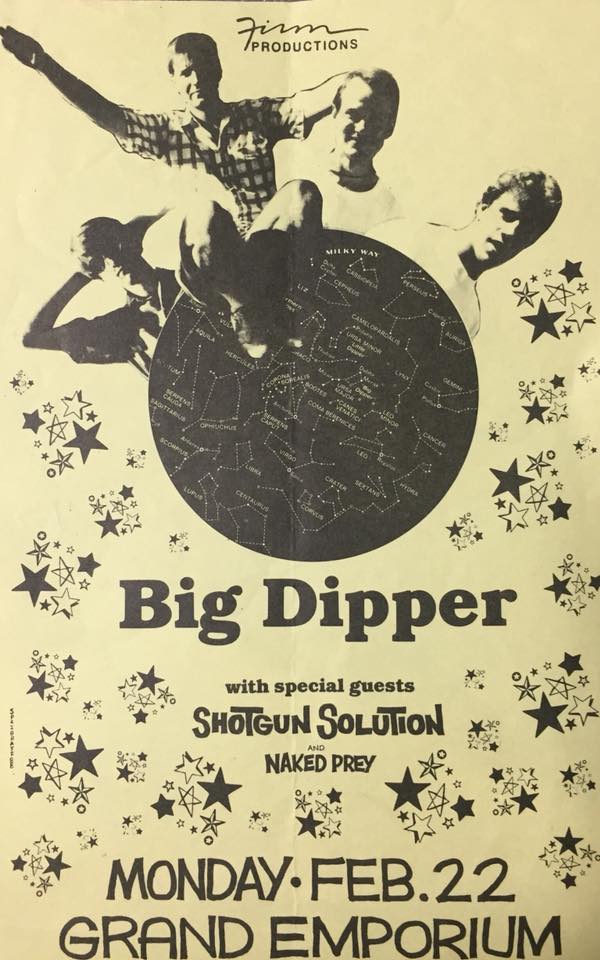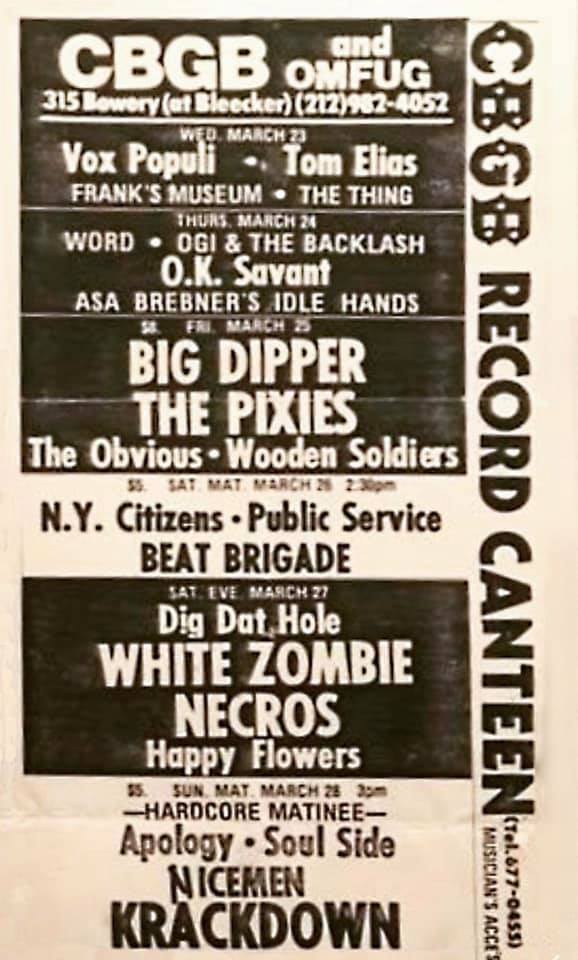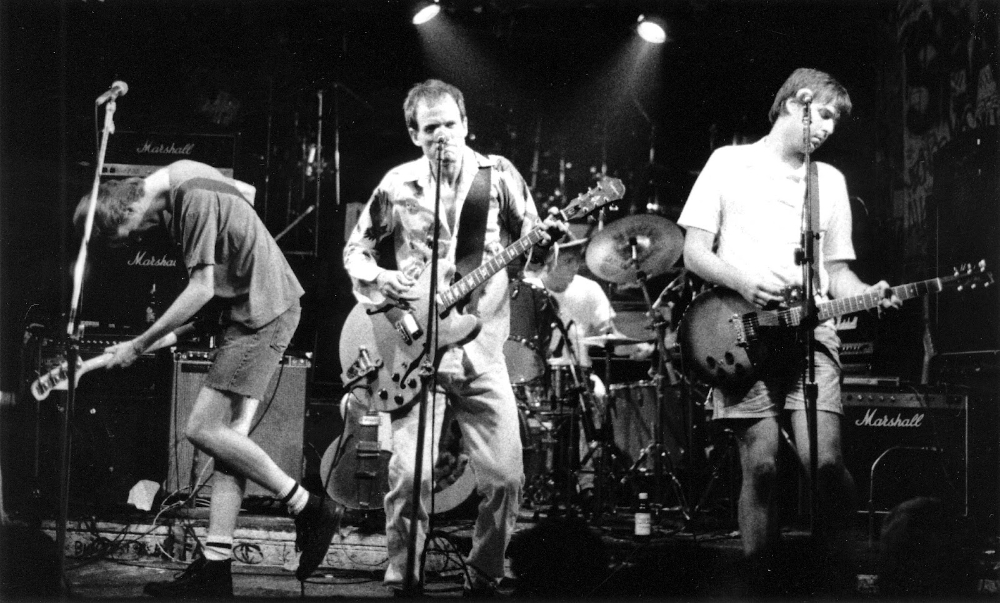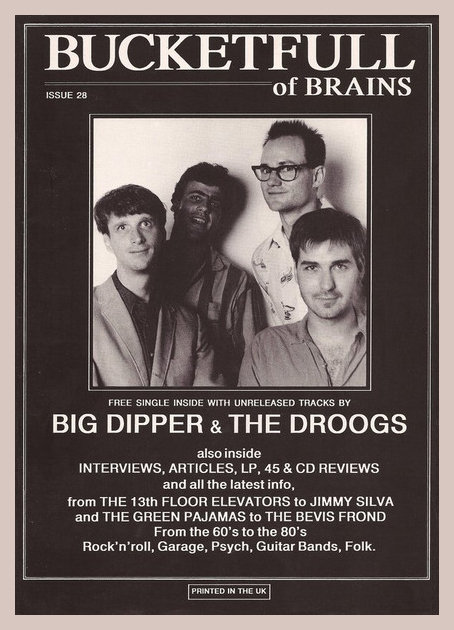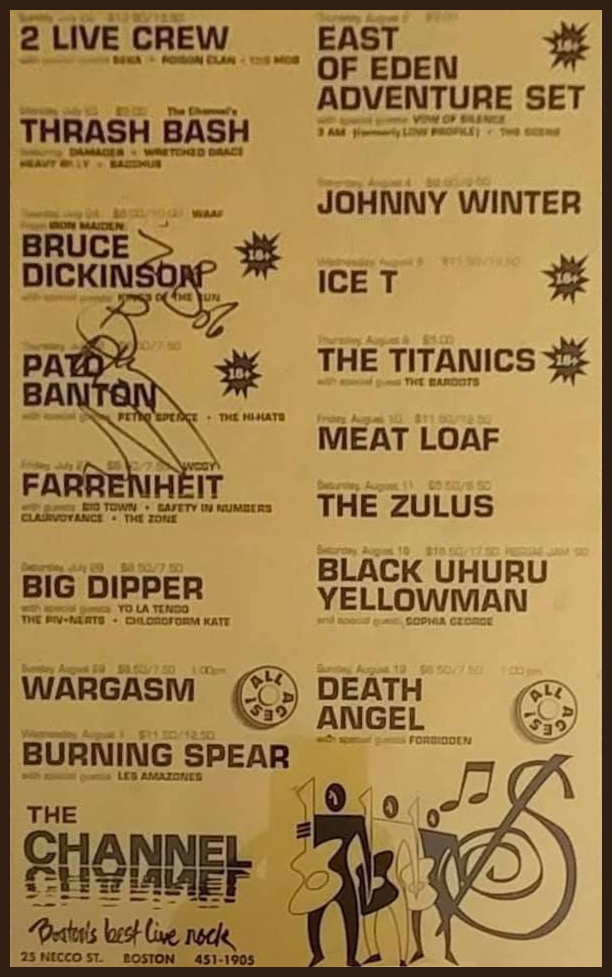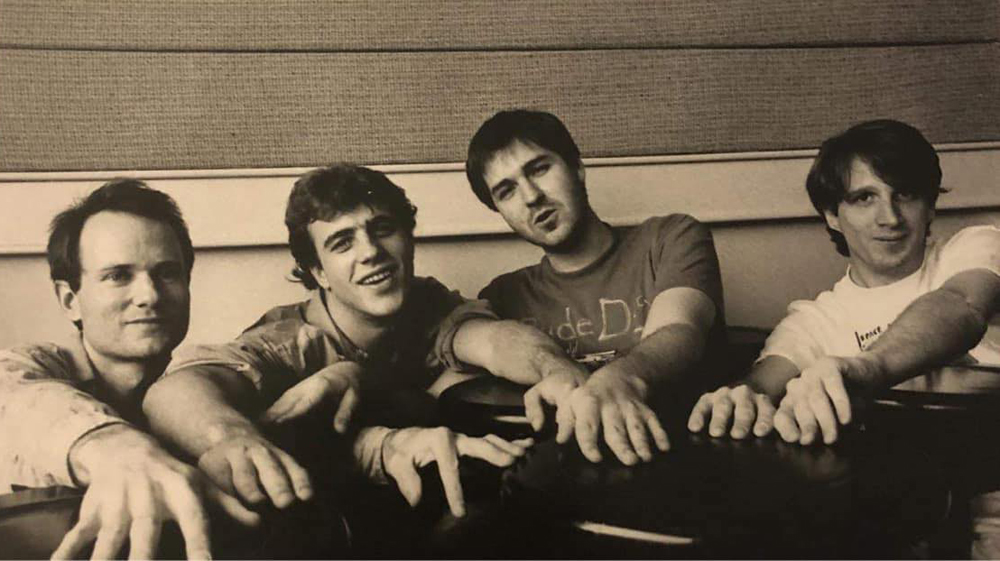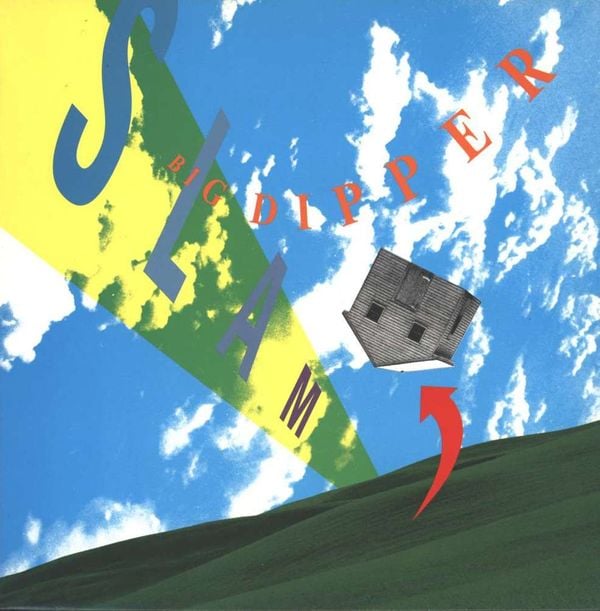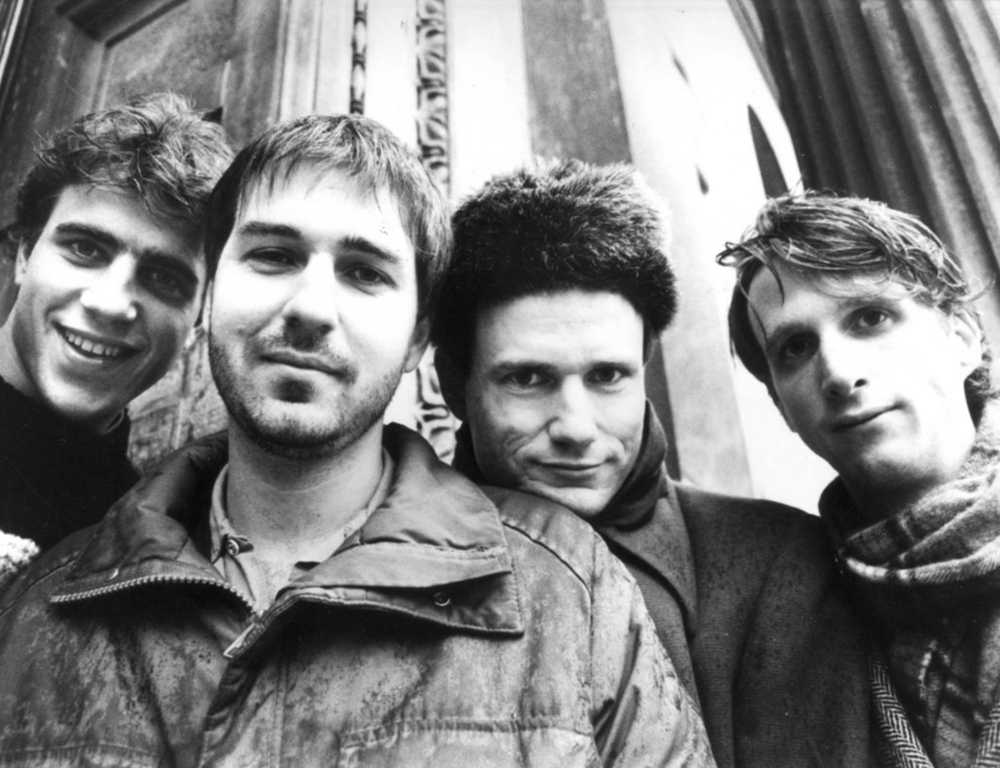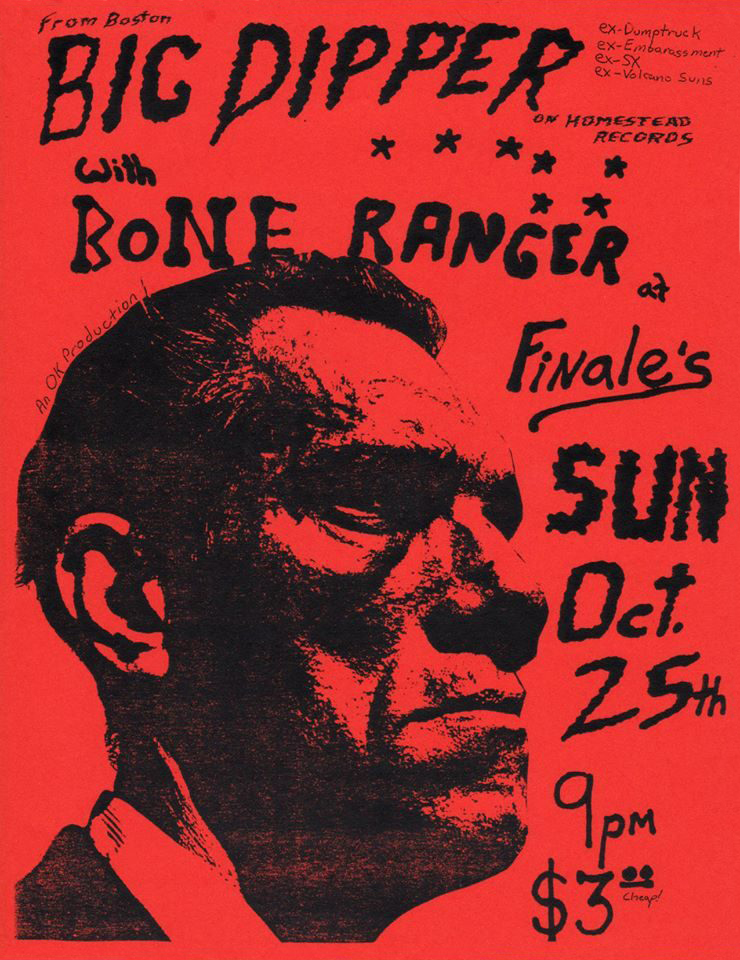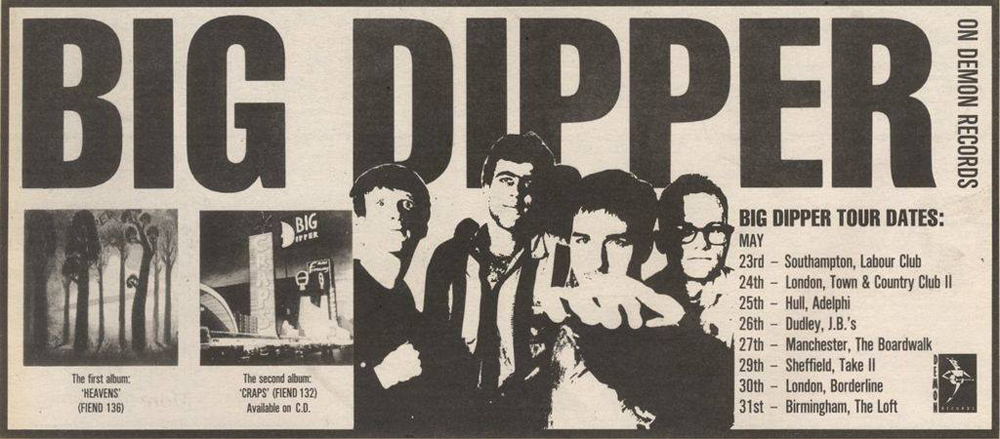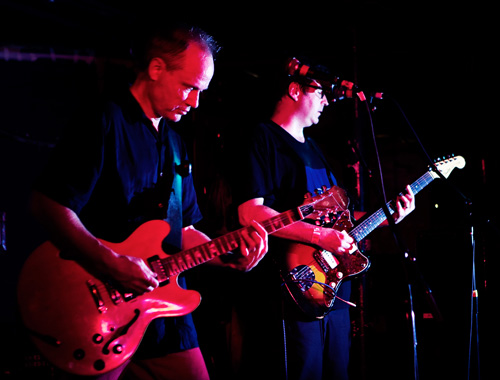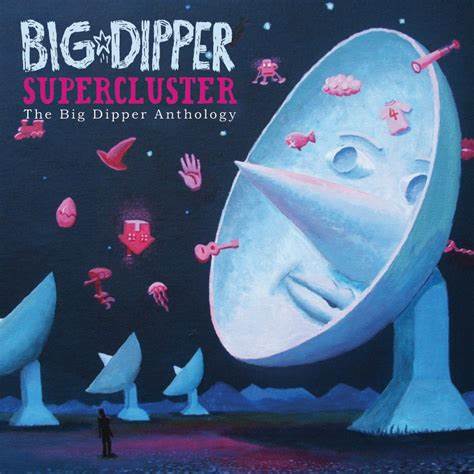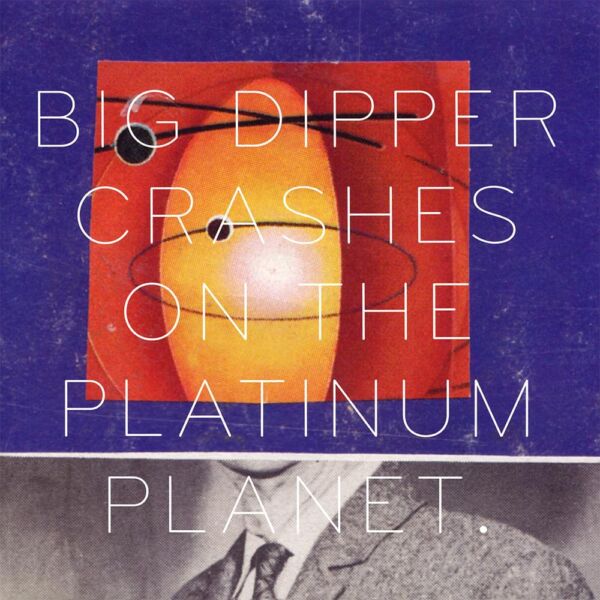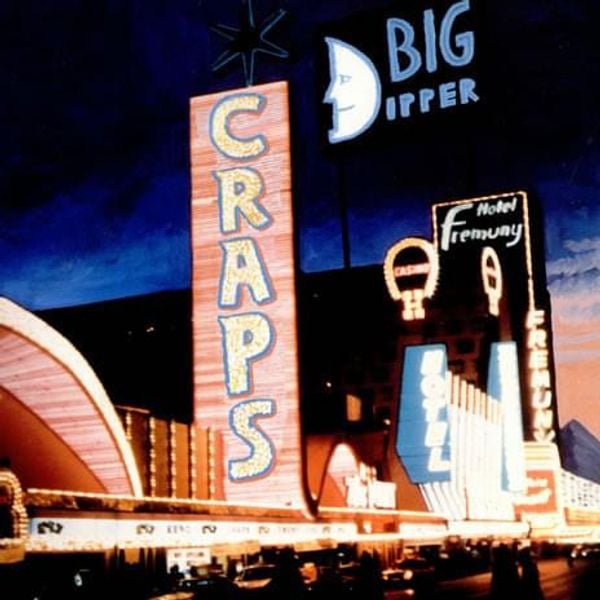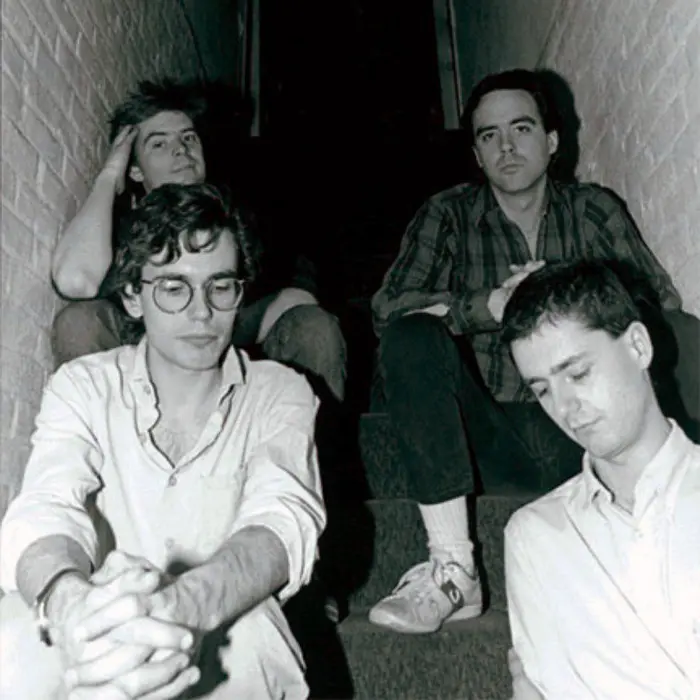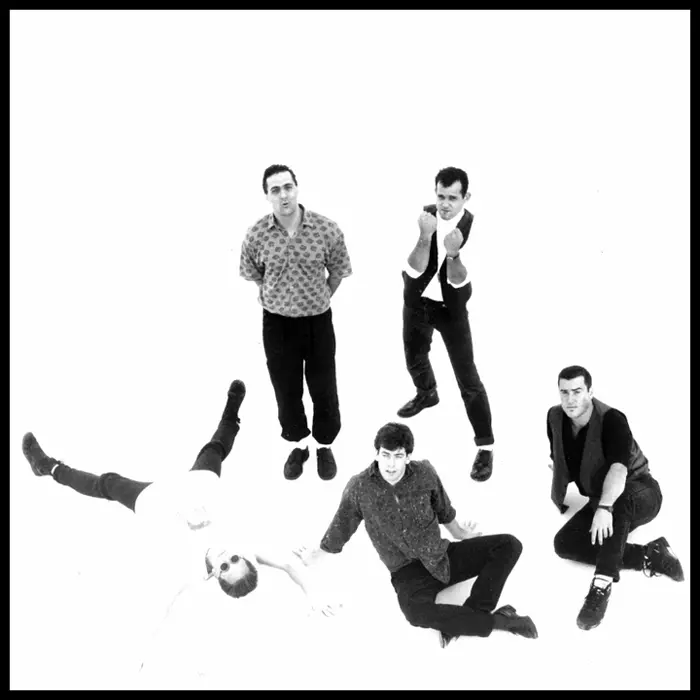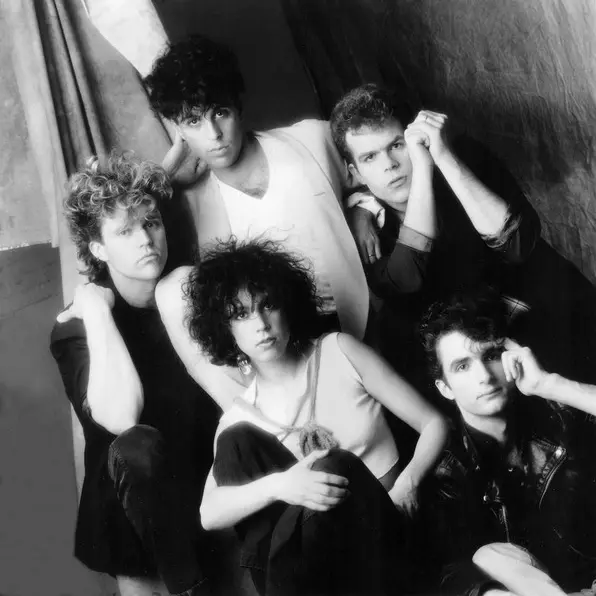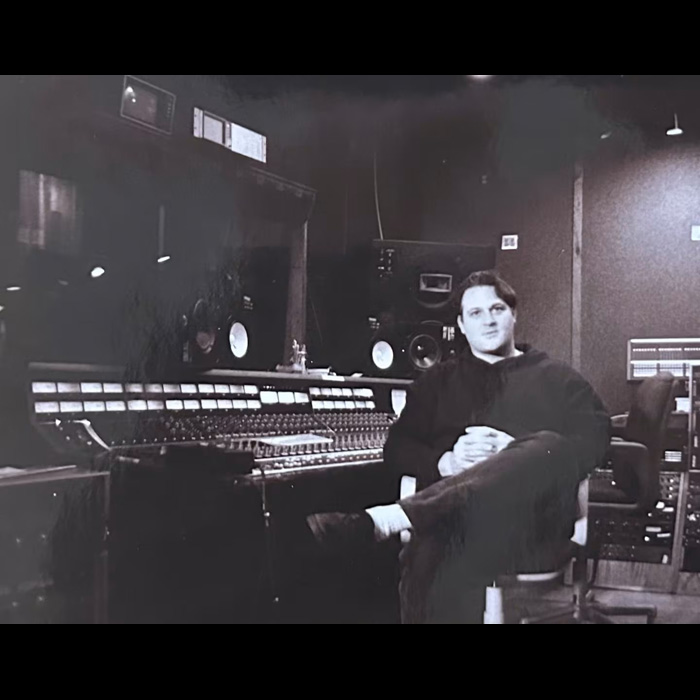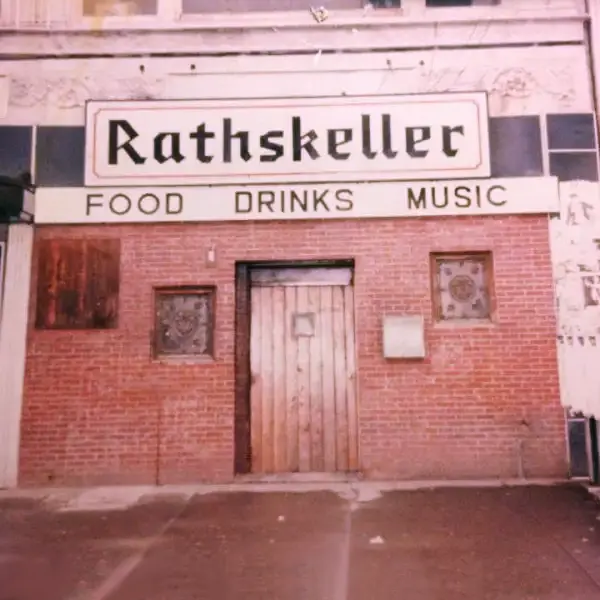Big Dipper
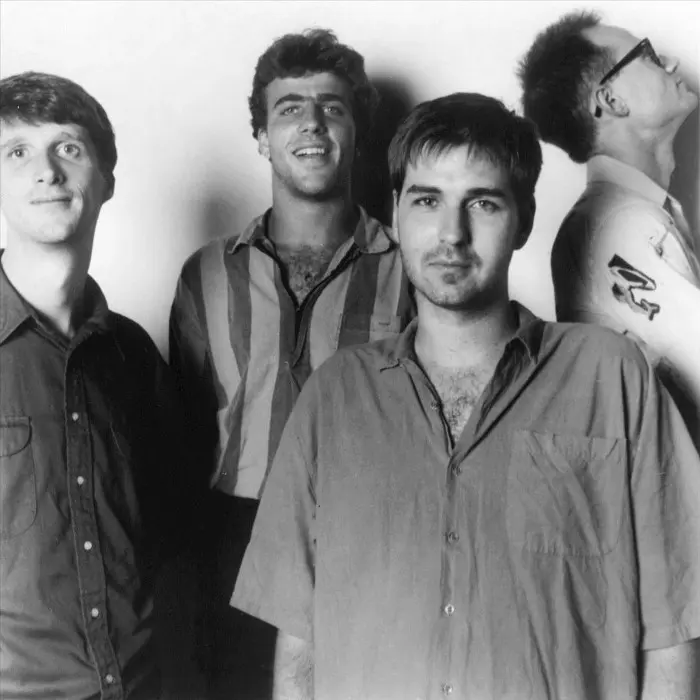
Big Dipper’s backstory is about as common as 4/4 time: First, they built a fierce local following, recorded some albums on an indie label and toured like mad. Second, they signed with a major label and cut a heavily produced LP that was a dramatic departure from their original sound. Third, the disc fell short of the label’s sales expectations and the label promptly tossed the band off its roster. Scads of great groups have exactly the same narrative, of course. Same old, same old.
But while their history isn’t unique, their sound certainly was since the quartet of seasoned stage/studio vets had originality, attitude and wit up the wazoo. Karen Shoemer of The New York Times called them “musical contortionists” who “toy with extremes” by “juxtaposing ferocious guitar noise with celestial vocal harmonies or planting a delicate melody in jagged rhythm.” Jennifer Kelly of Dusted magazine said they were perfect for the ‘80s college crowd with their blend of “prickly love songs,” “goofball surrealities” and “sardonic pop-punk rants.” Brad Cohan of Rock and Roll Globe called them “part Mission of Burma, part Beatles, part Television and part Feelies but with a brainy, high-strung and hooks-delicious power-pop sound all their own.”
And though Big Dipper quickly vanished from the national rock galaxy – like their Boston-based contemporaries O Positive, Face to Face and Tribe – they were a significant presence on the local scene back in the proverbial day and have a devoted following even now, some four decades after they made their first demos.
Formation
Big Dipper formed in Boston 1985 after guitarist Gary Waleik and bassist Steve Michener left the original lineup of Volcano Suns (formed in 1983 with Mission of Burma drummer Peter Prescott). Michener joined Dumptruck after the split and Waleik began writing songs with singer-guitarist Bill Goffrier, who’d moved to Boston to study painting at Boston University after his band, Kansas-based The Embarrassment, broke up in 1983. “The more we talked, we thought we had a common interest in just making music for the love of the music,” Goffrier told Desert magazine about collaborating with Waleik, whom he’d met at a Volcano Suns show. “We just wanted to find an outlet for songs and recording and whatever. We were really not trying to strategize and create a group.”
But create a group they did, within months after they began writing together, by bringing in Michener and drummer Jeff Oliphant (Waliek’s cousin, formerly of XS and The Iron Gerbils). The four rehearsed at Oliphant’s house in Concord, Massachusetts, played a few gigs in and around Boston and by mid-1986 had recorded a six-song demo tape on a four-track.
Boo-Boo, Heavens, Craps
During his time with Volcano Suns, Waleik had met Wayland, Massachusetts native Gerald Cosloy of Long Island-based Homestead Records and he sent him the demo recordings with no expectations of a reply. “All of a sudden, he basically sent a contract in the mail saying, ‘Sign here if you like the terms,’” Waleik told Desert’s Kelly in 2012. “We didn’t even have a name for the band at the time.” Homestead released them as the EP Boo-Boo in March 1987. The opening song, “Faith Healer,” saw strong airplay on college stations across New England and the disc was well-received in the press, putting the band on the indie-rock map.
In mid-1987, the band recorded their first full album, Heavens, a fusion of bright power pop and dark indie angst with neo-psychedelic flairs that The AllMusic Guide named “one of the finest American indie albums of its era.” The album sleeve featured Goffrier’s painting of a UFO and extraterrestrial life became a regular theme on future releases. By late 1987, the band was a staple on local college and club circuit, playing venues like The Rathskeller and The Channel in Boston. In April that year, they debuted at CBGB in New York City.
In October 1988, Homestead released Big Dipper’s second LP, Craps, which the band supported with incessant touring throughout the year in North America and Europe. Critical response was tepid compared to that for Heavens but the album further established the group as a major part of the burgeoning indie scene and drew the attention of several major labels including A&M, IRS and Epic.
Epic signing, Slam
In 1990, Big Dipper signed with Epic – a few months after O Positive had done the same – and recorded the 14-track Slam in Charlotte, North Carolina. Asked in 2022 why the band decided to make the move to a major label, Michener said it was a blend of management pressure and feeling like their material warranted broader exposure. “Our management was doing what managers do, which is like, ‘Oh, we need to go for the big time, go for the big money, since you guys have done all you need to do on a small label and now it’s time for that,’” he told Rock and Roll Globe’s Cohan in 2022. “So, we bought into this idea that we were ‘worthy’ of being on a major label and deserved that kind of attention.”
Co-produced by the band and Steve Haigler (who was the engineer on Throwing Muses’ Hunkpapa in 1988 and mixed Pixies’ Doolittle in 1989), the LP represented a major shift in the band’s sound with some tunes featuring samples, horns and synthesizers; unsurprisingly, most reviews in the indie press cited it as yet another example of how a major label’s involvement often destroys a band’s artistic relevance. Others disagreed, however, including AllMusic’s Net Raggett, who wrote that the album should not be dismissed. “It still sounds a heck of a lot better than many other releases, thanks to the group’s ear for a hook, despite whatever window-dressing might be employed,” he wrote.
Waleik has said there were a few unexpected events that resulted in Slam’s limited critical and commercial success. “The same day the record came out, the one key guy at Epic who knew anything about indie rock quit,” he told Desert magazine’s Kelly in 2012. “Then, one of our managers quit. We had planned a big tour for June and July but Epic pulled our tour support. It was a disaster. Moreover, the band was never happy with Slam. I don’t think it was the right record for us in terms of the songs or in terms of the god-awful cover. It was just terrible.”
Michener has commented on what he now thinks were in-studio mistakes that the band made while recording the album, among them using a click track. “We did things we thought we were supposed to be doing, like playing to a click track,” he told Rock and Roll Globe’s Cohan. “Actually, though, going back, one fun feature of our early records is how some songs speed up and slow down. But on Slam, we were on a major label [so] you gotta learn how to play to a click track.”
Disbanding, Supercluster anthology, Reunion shows
After yet another nationwide tour, which included a show at the Paradise Rock Club in Boston, Michener left the group in July 1990 and moved to California, where he worked briefly with singer-songwriter Barbara Manning before leaving the music business and becoming a nurse. Epic dropped the group in May 1991 and the band pursued another label deal to no avail. “We kept writing and writing, recording and recording, just having faith in our abilities as songwriters that somebody would pick us up and we’d be fine,” Waleik said in 2012 about the band’s post-Epic period. “But it became clear that no one was interested.”
After the band cut the single “Approach of a Human Being” b/w “The Beast” for Feel Good All Over Records in 1991, former Del Fuegos kitman Woody Geissman replaced Oliphant and the band stayed together until mid-1992. Goffrier and Geissman formed the trio Saucer with bassist John Styklunka and Waleik walked away from the music business, eventually becoming a producer for National Public Radio.
In March 2008, 16 years after Big Dipper called it quits, Merge Records issued Supercluster: The Big Dipper Anthology, a three-disc box set featuring remasters of Boo-Boo, Heavens and Craps plus some unreleased tracks (recorded after Michener had left the band), a video and extensive liner notes. The release prompted renewed interest in the band, leading to several reunion shows in April 2008 and licensing of some of their songs: “All Going Out Together,” “She’s Fetching” and “Younger Bums” were included in the Rock Band video game series in 2009; “All Going Out Together” appeared in the film I Melt with You (2011); and “Ron Klaus Wrecked His House” was featured in the film Gold (2016).
Big Dipper Crashes on the Platinum Planet
In December 2011, two full decades after breaking up, Big Dipper reunited for a show at the Regent Theatre and in November 2012 Almost Ready Records released their first new album in 22 years, Big Dipper Crashes on the Platinum Planet, which AllMusic critic Doug Simpson said “melds Weezer-like energy with the Fountain of Wayne’s cerebral lyrical quality.” Produced by Waleik, the disc features him on keyboards, guitars and vocals, Goffrier on guitars and vocals, trumpeter Daniel Waleik, bassist-vocalist Tom Brewitt and original drummer Oliphant. In early 2013, they appeared at The Middle East in Cambridge and the Iron Horse Music Hall in Northampton; since then they’ve played several shows in England and at various festivals.
Reflections on Epic signing
Asked in 2022 if the members of Big Dipper were worried about being labeled a “sellout” when they signed with Epic, Michener said they were aware of that possibility but didn’t see themselves that way at the time. “I was keenly tuned to that and there were plenty of Boston bands who I loved as indie bands who had gotten their chance and had screwed it up, like Nervous Eaters, The Rings and The Del Fuegos,” he told Rock and Roll Globe’s Cohan. “The Del Fuegos, they got very successful but they sold out their sound for the corporate world. So, I was very sensitive to that yet somehow I got sucked into the exact same thing. And I didn’t see it coming, which I guess is not a big surprise.”
“Then, when I started hearing stories of the post-Nirvana bidding war [among major labels in 1992/3], I was like, ‘Damn! We left two years too early!’ Terrible bands were getting offered stupid deals and walking away with boatloads of cash,” he said, adding the following with a smile and a laugh: “We signed too early. We were ahead of our time. The story of our entire career.“
(by D.S. Monahan)

